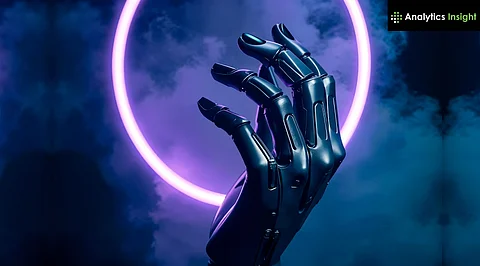

Over-reliance on AI can lead to biased, flawed, or unethical decisions in critical areas.
AI systems lack human empathy, accountability, and contextual judgment.
Trust in AI should be balanced with strong human oversight and transparency.
Artificial Intelligence (AI) has come a long way recently. It's now part of our lives, from voice assistants to medical diagnoses, self-driving cars, and guessing what the market will do. AI is getting really good, really fast, and that's got a lot of folks pumped. But we still need to keep our eyes open. If we blindly trust AI without using our brains, we could run into problems.
Since AI is changing so much about our lives, we need to think about what could happen if we depend on it too much, especially when the chips are down or something is super important.
One big misunderstanding is that AI is always correct. But AI learns from the info it's given. If that info is wrong, unfair, or missing things, AI will make the same mistakes. For example, face ID software is more likely to get it wrong when looking at people with darker skin. If this happens with the police, it could end up with people being arrested for no reason or being watched unfairly.
AI isn't neutral. It copies the choices people make, and often, those choices aren't so hot, when it's being taught. Thinking a machine will be spot-on just because it's not a person is risky, especially in important places like hospitals, courtrooms, and schools.
Also Read: AI in Indian Hospitals: How Startups Are Solving Worker Shortages
AI can spot trends and guess what will happen, but it doesn't have what people have: good judgment. When the stakes are high, like in medicine, war planning, or handling emergencies, decisions need to be made based on the situation, feelings, and what's right or wrong. AI doesn't get these things. It can follow the rules, but it can't tell when something is morally iffy or understand how serious the results of its actions can be.
For example, in a hospital, AI might advise a treatment just based on numbers. But a doctor might also think about how the patient is feeling, what their family is like, or other things you can't put a number on before deciding what to do. This human touch is key and often makes a big difference.
Also Read: IP Address Tracking Software to Try in 2025: Hot Picks
When AI messes up, who's responsible? Many groups are still trying to figure this out. If a self-driving car crashes or a chatbot spreads fake news, it's not always clear if it's the fault of the people who made it, the people who used it, or the AI itself.
It gets tricky when AI's running the show and no one's at fault. A lot of these systems are like black boxes, too. Even the creators don't understand how they reach conclusions. This secrecy makes it hard to trust AI or even fix problems when they pop up.
For example, if pilots or cybersecurity pros rely too much on machines, it could be risky. If they forget the basics or how to handle emergencies, they won't be able to react when something goes wrong, which could lead to slower response times and major problems.
AI's watching us, too. Programs are snooping around on social media, tracking what we buy, and reading our chats to build up profiles on us. They say it's to make things more personal or to keep us safe, but it could easily be used to mess with us or invade our privacy.
The rules about how AI should be used aren't keeping up with how fast it's growing. If we don't get some decent rules in place, companies or governments could start using AI without us even knowing, which would make it hard to trust anyone.
AI is likely to keep changing things up, so don't blindly trust it. Even systems that seem smart don't truly understand things like empathy, ethics, or just plain common sense. If we lean on AI too much, we might face a few issues.
For instance, AI might give unfair results, or we might lose our skills if we rely on it too much. Also, privacy could be at risk if data falls into the wrong hands. So, we need to be careful when building AI to ensure it benefits everyone. The key is to keep AI from becoming too powerful, and instead make sure it boosts human capabilities, keeping people in control.
